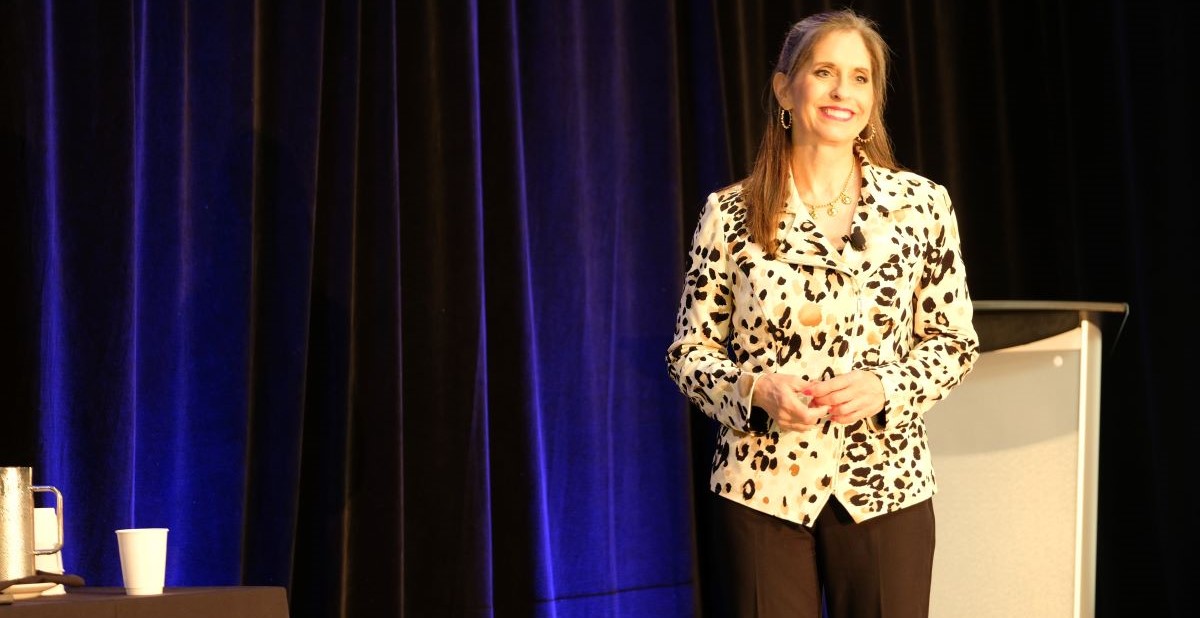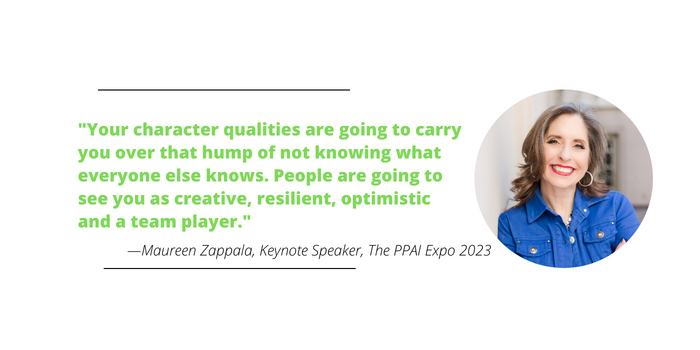Keynote Q&A: Maureen Zappala To Tackle Imposter Syndrome

Among the many speakers and education opportunities at The PPAI Expo Conference, set for January 9 at Mandalay Bay Convention Center in Las Vegas, is Maureen Zappala, a former NASA engineer who studies and teaches audiences about imposter syndrome, how it manifests and strategies to combat it.
As a preview of her Expo presentation, Zappala, who also spoke at this year’s PPAI Women’s Leadership Conference, sat down with PPAI Media to talk about imposter syndrome and how it might affect people in the promotional products industry
PPAI Media: Your story involves working for NASA as an engineer, and you suffered from imposter syndrome that you ultimately overcame. Being a public speaker now, that’s a job that many people are terrified of. Was there a new phase of it in this new chapter of your life?
Maureen Zappala: Absolutely. It’s a cold reality, you don’t actually ever overcome it. It doesn’t go away. But it does morph. It does change. And you can learn ways to manage it. You can arrest it in the moment to make the path a little easier.
I loved working at NASA. It was my dream job. But every day felt like today’s the day they’re going to figure out I don’t know what the heck I’m doing. It wasn’t until years later that was normal, I wasn’t the only one who struggled with it, and it had a name and solution. I’ve done a lot of research to understand strategies to overcome it. I wish I knew then what I know now. I had a great career at NASA, but I think it would have been even better.
Now, I’m a speaker. Imposter syndrome is more about doubt, not necessarily about terror. Because I still feel terror. I still get scared when I talk to an audience. Do I doubt my skills as a speaker? Sometimes yes. I could look at a speaker and say ‘Wow, they’re so much better or more polished.’ I have to wrestle with those thoughts. I have to convince myself that I still know what I’m talking about. I still bring to the table worth and value.

PPAI Media: At The PPAI Expo, many of the people work for large companies, but there will also be people there that work for much smaller companies with less resources. Do you ever see a trend where the existence of large companies creates an imposter syndrome with smaller companies who may become less ambitious with the clients they pursue?
Zappala: I met many members of the Association at the WLC. Loved them. Loved the camaraderie. There are legitimate reasons for people to feel like imposters, like they don’t belong. Big company or small company, the solution is the same: to center yourself, take inventory of your skills, your abilities, your history, your expertise, your education, your influence, your character qualities and recognize the value that brings to the table, no matter how big or small that table is.
PPAI Media: Communication and communication channels are such buzz words in organizations. I imagine even a friendly manager with an open door won’t communicate well with their team if imposter syndrome is rampant. Do you notice it affecting communication?
Zappala: Step No. 1 is to recognize what imposter syndrome is and realize that you’re not alone. Once you realize that, whether you’re the person struggling with it or the person who managers that person – because chances are you both do – it’s like the great equalizer. Then it’s easier to bridge that gap and open conversations. Managing someone with imposter syndrome is a whole other issue because that person is working so hard to present this picture of someone competent and qualified. That manager can see that and say “Wow, they’re doing just fine,” but behind the scenes is someone who is frantic and worried. Interpreting that is the trick for a leader.
PPAI Media: Plenty of people in the promo industry were entrepreneurs who found themselves here by happenstance and then there are so many terms and understood ways of doing things that someone new to the industry might feel everyone but them is savvy to. At a place like The PPAI Expo, do you think it would be helpful to assume some people are hoping they don’t get exposed for still learning the business?
Zappala: Imposter syndrome screams the loudest in times of change. It can scream when people change from one industry to another. Part of the change is I’ve never done this before. But part of the change actually has to do with, believe it or not, verbiage. The language, buzzwords and terminology. Give yourself grace and understand when you’re catastrophizing. If I mess this up they’ll think I’m stupid or my career is over. It’s illogical. The people you want to glom on to, you can say to them, ‘Help me learn and understand.’ People will respond to that and see it as worthy of respect. It means you want to work hard and want to learn and are capable of learning. Your character qualities are going to carry you over that hump of not knowing what everyone else knows. They’re going to see you as creative, resilient, optimistic and a team player.
Registration is now open for The PPAI Expo 2023 (January 9-12).

